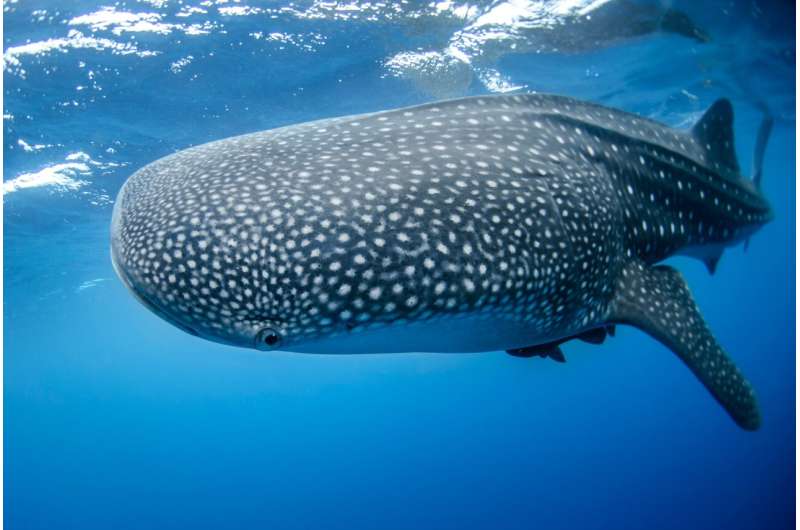Three marine scientists from the University of Western Australia have found that some whale sharks will slow down so that researchers can get copepods from sensitive areas by scraping them off with a stick. In their study, which was published in the journal Fishes, Brendon Osorio, Grzegorz Skrzypek, and Mark Meekan found that whale sharks have been helping researchers get parasite samples more and more over the past few years.
Scientists have been taking samples of whale shark skin and/or parasites for a long time. Sharks are the biggest living fish and the largest living vertebrate that is not a mammal. They are sharks, not whales, and got their name because they can grow to be very big. The biggest one ever found was 18.8 meters long. Since they filter feed, there isn’t much chance that they will bite. But because they are so big, other animals could get hurt if they get too close. Scientists study them to find out more about them and about the open sea, where they live.
Researchers have been studying sharks for almost ten years. They have been taking samples of the sharks’ skin and flesh to find out what they might eat and how deep they dive. In recent years, they found that they could get pretty much the same information by collecting copepods, which are small parasite crustaceans that stick to the sharks’ skin. They also noticed that the suckerfish that stick to sharks do so to eat the copepods. However, they usually only eat copepods on flat, easy-to-reach parts of the shark’s skin. The copepods that are stuck to the fish’s mouth and fins are left alone. Because of this, the researchers started removing and bagging parasites from these places with a small plastic knife.
As time went on, the researchers took samples from the same shark more than once. The sharks seemed to remember the encounters fondly, because when the researchers got close, they slowed down or even stopped swimming, which made it easier for the researchers to do their work. They think that getting rid of the bugs makes swimming easier and less irritating.







